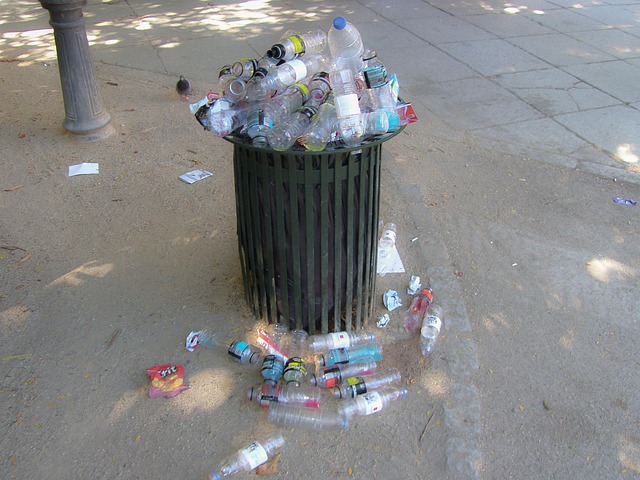The NYS electronic recycling law in Boston mandates responsible e-waste management for businesses with targets, collection events, and proper disposal methods. Non-compliance faces penalties while incentives encourage active promotion of electronic recycling. This approach fosters a sustainable future by transforming tech waste into resources instead of harmful landfill materials. Boston aligns with these regulations through local drop-off locations and designated collection events. Adherence is crucial for minimizing environmental impact and contributing to a cleaner, more sustainable city and state.
“New York City (NYC) embraces a tech trash pickup approach, aligning with the state’s robust NYS Electronic Recycling Law. This article explores how cities like Boston have pioneered sustainable waste management for e-waste, offering valuable insights. We compare legal obligations and environmental impacts of e-waste recycling, highlighting community engagement strategies. From Boston’s tech trash initiatives to NYC’s disposal methods, discover how these practices contribute to a greener future. Learn about the legal framework and community efforts driving sustainable electronic waste disposal.”
- NYS Electronic Recycling Law: An Overview
- Boston's Tech Trash Pickup Programs
- Comparing Waste Management Practices
- Legal Obligations for Businesses
- Environmental Impact of E-Waste Recycling
- Community Engagement in Sustainable Disposal
NYS Electronic Recycling Law: An Overview

In New York State (NYS), the Electronic Recycling Law aims to reduce the environmental impact of discarded electronics. This law requires businesses and organizations in Boston, like elsewhere in NYS, to recycle or dispose of electronic waste responsibly. The NYS Electronic Recycling Law, enacted to protect public health and the environment, sets guidelines for the proper management of e-waste. It includes provisions on recycling targets, collection events, and proper disposal methods.
Boston residents benefit from this law as it ensures their electronic devices, such as computers, phones, and TVs, are recycled or repurposed safely. Businesses in Boston must comply with these regulations, which include NYS penalties for non-compliance. Additionally, the state offers incentives for companies that actively promote electronic recycling, encouraging a more sustainable approach to waste management in Boston and across NYS.
Boston's Tech Trash Pickup Programs

In Boston, efforts to address electronic waste (e-waste) management have been gaining momentum, aligning with New York State’s (NYS) stringent electronic recycling laws. The NYS electronic recycling law not only mandates responsible disposal of electronics but also sets guidelines for businesses and residents alike. Boston area businesses have a clear responsibility under this law to ensure proper e-waste recycling, contributing to the city’s eco-friendly initiatives.
To facilitate compliance with NYS directives, various e-waste recycling events are frequently organized in Boston. These events provide an accessible way for residents to recycle their electronics responsibly. By adhering to these guidelines, Boston is moving towards a more sustainable future, ensuring that tech trash does not end up as harmful waste but is instead transformed into valuable resources through proper recycling processes.
Comparing Waste Management Practices

In recent years, both New York State (NYS) and Boston have been actively working to improve their waste management practices, with a particular focus on electronic waste or e-waste. The NYS electronic recycling law sets strict guidelines for proper disposal of electronics, encouraging cities like Boston to follow suit. Boston has taken significant steps towards responsible electronic waste recycling by establishing local e-waste drop-off locations, ensuring that residents have accessible and convenient ways to dispose of their old electronics.
Under the NYS regulations, the best time to recycle electronics in Boston is during designated collection events or at these drop-off locations. These initiatives not only promote environmental responsibility but also help to reduce the significant amount of e-waste that ends up in landfills. Boston’s proactive role in implementing these practices under the NYS law underscores its commitment to sustainable waste management and setting an example for other cities across the nation.
Legal Obligations for Businesses

In New York State, including Boston, businesses have legal obligations when it comes to managing and disposing of electronic waste (e-waste). The NYS electronic recycling law mandates that businesses properly recycle or dispose of electronic devices, such as computers, phones, and other electronics. This legislation aims to minimize the environmental impact of e-waste, which contains hazardous materials that can contaminate soil and water if not handled correctly.
Boston, as part of this regulatory framework, must adhere to the NYS regulations regarding the best time to recycle electronics and proper e-waste management. Recycling outdated electronics is not just an ethical responsibility but also a legal requirement for businesses under the current NYS legislation. This ensures that e-waste is processed in an environmentally friendly manner, contributing to a cleaner and more sustainable future for both Boston and the entire state.
Environmental Impact of E-Waste Recycling

The environmental impact of proper e-waste recycling is significant, especially in densely populated cities like New York and Boston. Under the NYS electronic recycling law, which sets strict guidelines for responsible disposal of electronic devices, both cities are required to establish robust electronic waste management programs. Boston’s role in adhering to these regulations, specifically those concerning e-waste, is crucial in mitigating environmental harm.
Non-compliance with NYS penalties for e-waste recycling laws can have severe consequences for businesses and municipalities. By understanding and implementing NYS regulations for electronic recycling programs in Boston, local entities can contribute to a sustainable future. This includes proper segregation, collection, and recycling of e-waste items, ensuring that hazardous materials are handled and disposed of according to environmental standards.
Community Engagement in Sustainable Disposal

In New York State, including the bustling city of Boston, there’s a growing emphasis on community engagement in sustainable disposal practices. The NYS electronic recycling law underscores the shared responsibility for proper e-waste management. This law not only binds Boston area businesses but also encourages residents to participate actively in recycling electronics responsibly. By adhering to these state laws and regulations, Boston is making strides towards effective electronic waste management.
Community involvement plays a pivotal role in this process. Initiatives like community collection events and educational programs help foster an eco-conscious mindset. Residents are guided by resources such as “Recycling electronics responsibly: A guide for Boston residents per NYS laws,” which provides clear instructions on proper disposal methods. This collaborative approach ensures that the city’s e-waste is handled according to environmental standards, aligning with both state mandates and local sustainability goals.
In conclusion, understanding and adhering to the NYS electronic recycling law is essential for businesses operating within the state. By examining successful tech trash pickup programs like those in Boston, we can see the positive environmental impact of proper e-waste management. Comparing waste management practices across different regions enables us to identify best strategies. Moreover, fostering community engagement in sustainable disposal methods ensures a holistic approach to reducing electronic waste. Together, these steps contribute to a greener future, aligning with the global push for responsible tech trash pickup and recycling.














